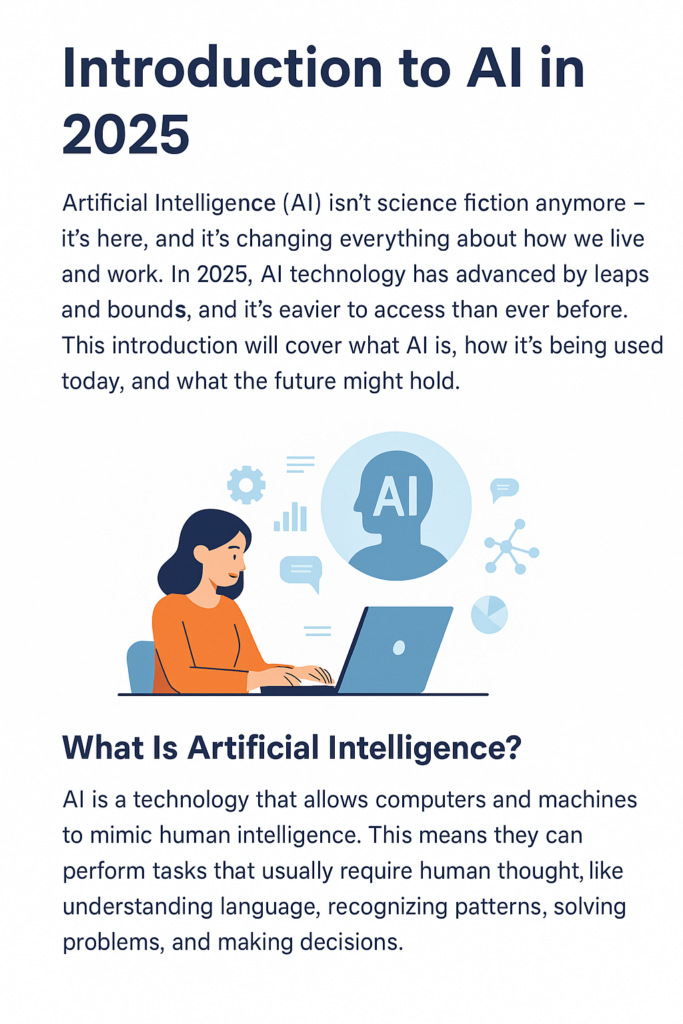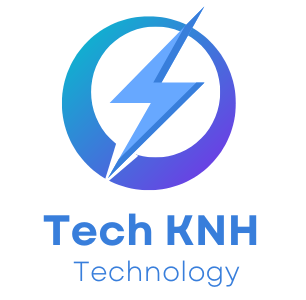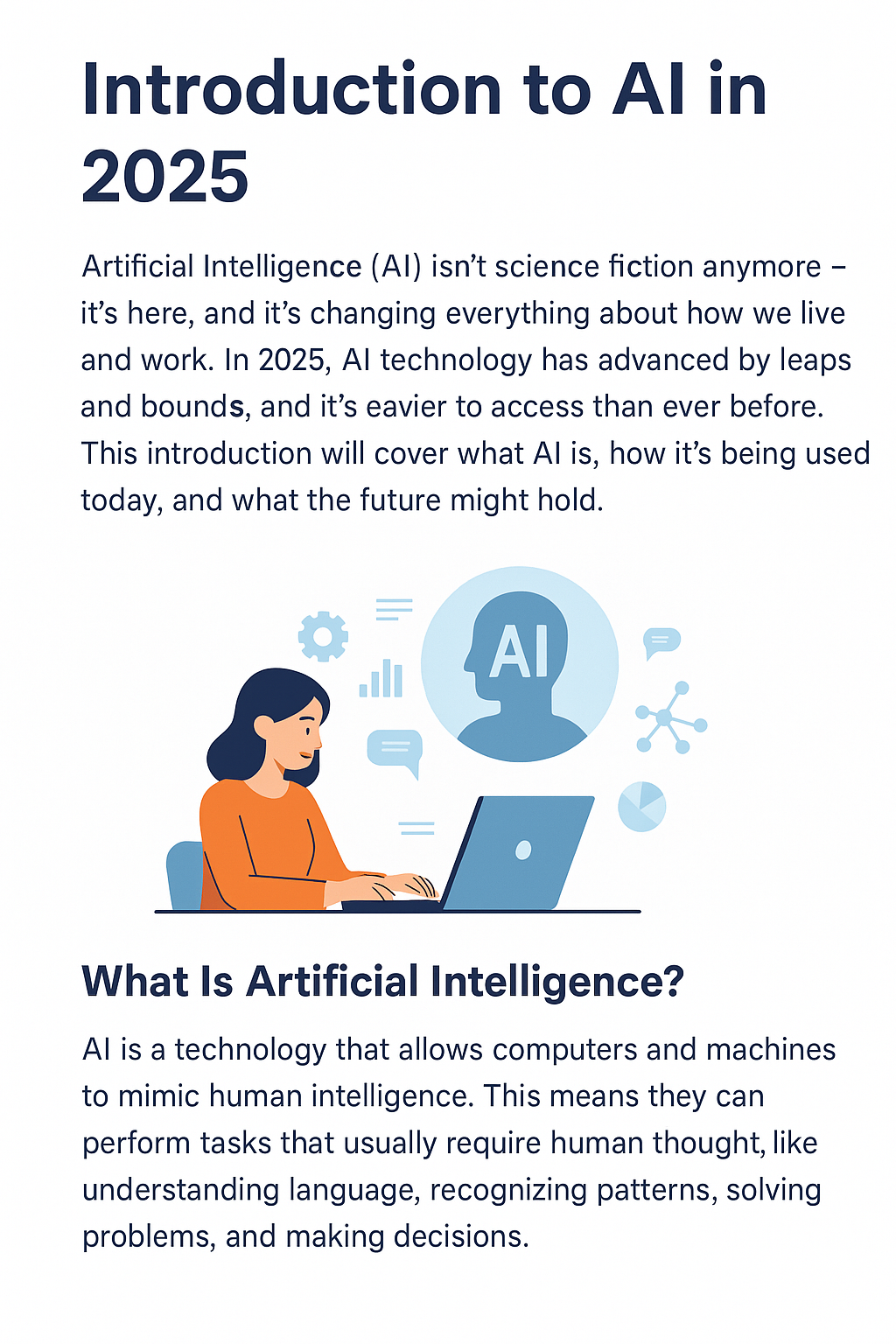AI in 2025

In 2025, artificial intelligence is no longer a futuristic concept—it’s a part of our everyday lives. From the way we work and communicate to how we shop, learn, and even stay healthy, AI is silently powering much of the digital infrastructure around us. But what exactly is AI in 2025, and how has it evolved to this point?
Let’s take a look at what makes AI such a transformative force today and why understanding it is more important than ever.
What Is Artificial Intelligence in 2025?
At its core, artificial intelligence refers to the ability of machines and software to mimic human intelligence. This includes tasks like learning, reasoning, problem-solving, understanding language, and recognizing patterns.
In 2025, AI is smarter, faster, and more accessible. Thanks to advancements in computing power, cloud infrastructure, and machine learning algorithms, even small businesses and individuals can harness AI tools that were once reserved for major tech giants.
Whether it’s ChatGPT helping people write content, AI-driven design tools creating stunning visuals, or smart assistants managing our schedules, AI is seamlessly embedded into apps and services we use daily.
The Major Shifts in AI Since 2020
Since 2020, there have been significant breakthroughs in how AI functions and how it’s integrated into society. Here are some notable trends shaping AI in 2025:
- Generative AI: Tools like ChatGPT, Midjourney, and Synthesia are now commonplace. They help create text, images, videos, and even music, often indistinguishable from human-made content.
- AI Assistants in Workplaces: From writing reports to analyzing data, AI has become an integral coworker in many fields—boosting productivity and enabling faster decision-making.
Voice and Multimodal Interfaces
: AI systems now understand and interact through voice, images, video, and text simultaneously, offering a more intuitive experience.- AI in Healthcare: AI assists in diagnosis, drug discovery, patient monitoring, and personalized treatment plans, often in real time.
How AI Affects Our Daily Lives
AI isn’t just for tech enthusiasts anymore—it’s for everyone. Here’s how you might be using AI without even realizing it:
- Streaming Services: Netflix, YouTube, and Spotify use AI to recommend content tailored to your preferences.
- E-commerce: Online stores use AI for personalized shopping, chatbots, and fraud detection.
- Smartphones: Voice assistants like Siri, Alexa, and Google Assistant have become AI-powered personal helpers.
- Education: Adaptive learning platforms use AI to create personalized learning paths for students.
AI is becoming an invisible but impactful part of modern life—saving time, improving convenience, and enhancing efficiency.
The Ethical Side of AI in 2025
With great power comes great responsibility. As AI becomes more embedded in society, ethical concerns are also front and center. People are asking critical questions:
- Is AI replacing too many jobs?
- Can AI-generated content be trusted?
- Who is responsible when AI makes a mistake?
- How is AI being used in surveillance or warfare?
In response, governments and tech leaders are pushing for transparency, fairness, and accountability in AI systems. Ethical AI design, data privacy, and responsible deployment are major discussion points in 2025.
Why You Should Care About AI
AI is shaping the future—and it’s happening now. Understanding how it works, how it’s evolving, and how it affects you can empower you to make informed choices, whether you’re a student, entrepreneur, parent, or professional.
You don’t need to become a programmer to understand AI. With a bit of curiosity and a willingness to explore new tools, you can leverage AI to boost your creativity, efficiency, and even career potential.
Final Thoughts
Artificial Intelligence in 2025 is more human-friendly, more powerful, and more deeply integrated into our lives than ever before. Whether it’s helping a doctor diagnose a rare illness, assisting a content creator with their next big idea, or simplifying a student’s homework routine, AI is not just a buzzword—it’s a silent partner in modern life.
This is just the beginning of your journey into AI. Stay curious, explore the tools, and keep asking questions—because the future of AI is also the future of you.

